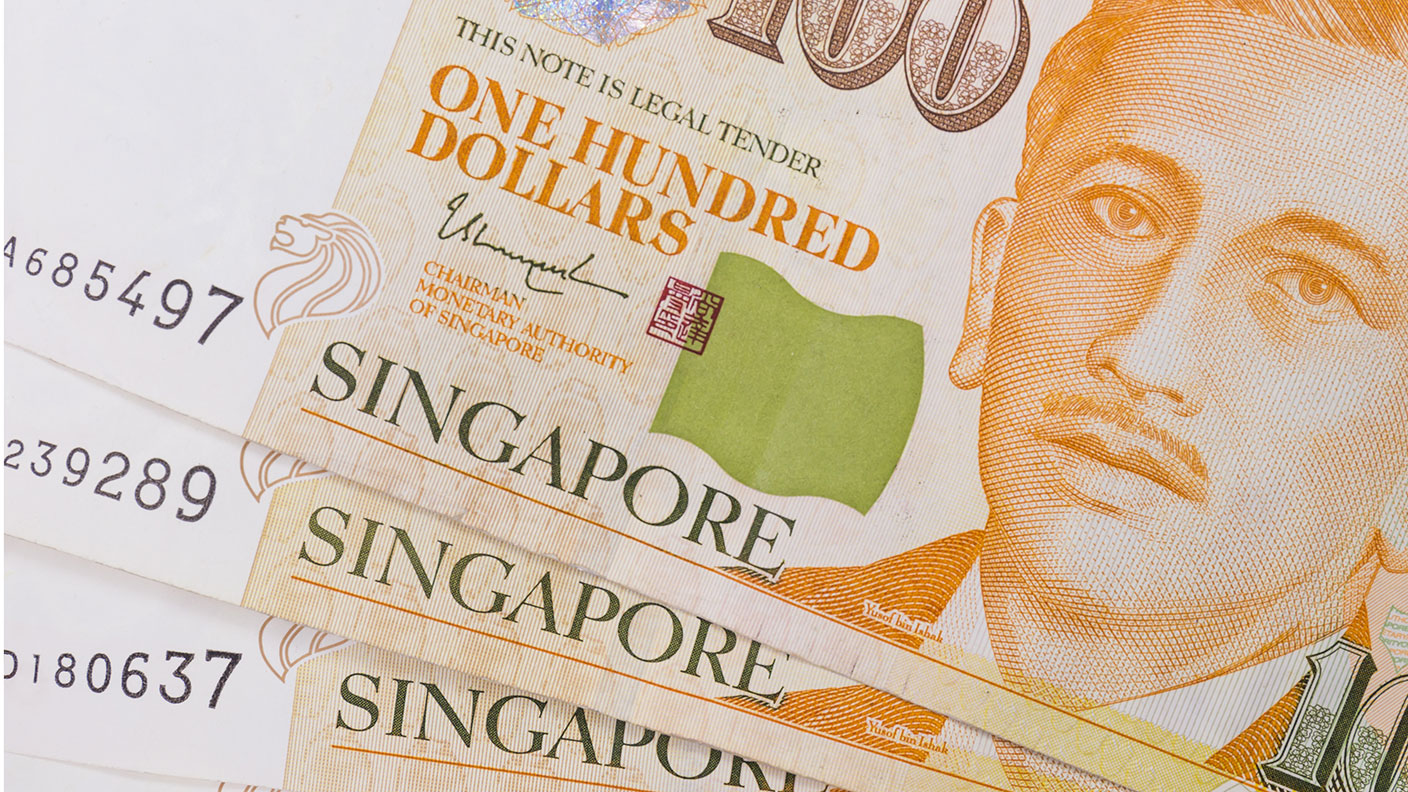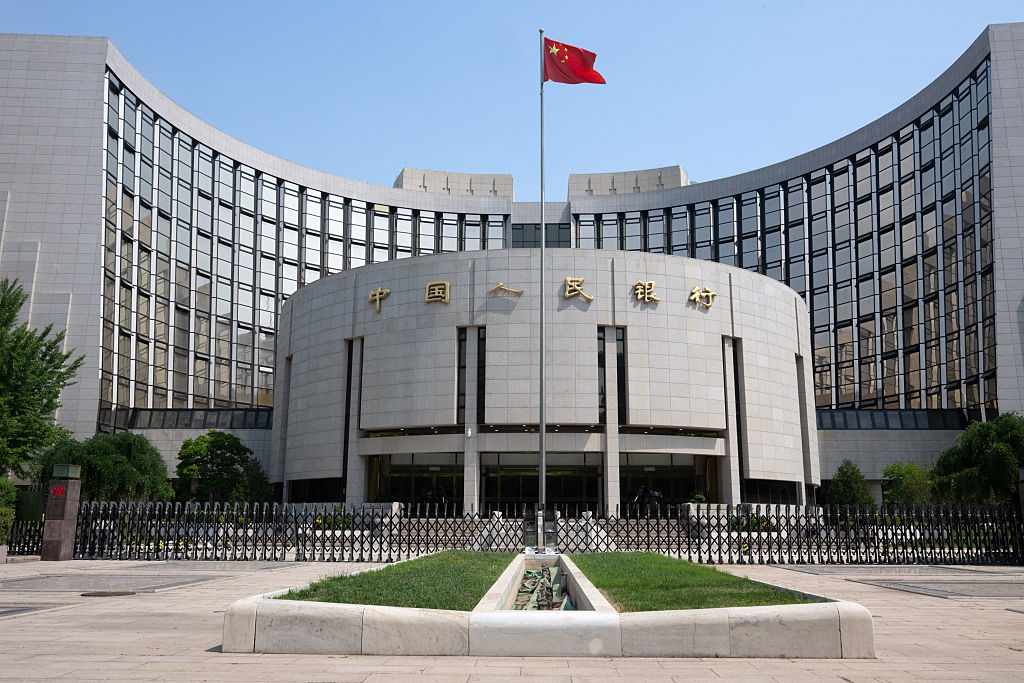The return of the currency wars
The post-2008 currency wars were all about the race to the bottom. The post-Covid world is very different, says John Stepek.


Get the latest financial news, insights and expert analysis from our award-winning MoneyWeek team, to help you understand what really matters when it comes to your finances.
You are now subscribed
Your newsletter sign-up was successful
Want to add more newsletters?

Twice daily
MoneyWeek
Get the latest financial news, insights and expert analysis from our award-winning MoneyWeek team, to help you understand what really matters when it comes to your finances.

Four times a week
Look After My Bills
Sign up to our free money-saving newsletter, filled with the latest news and expert advice to help you find the best tips and deals for managing your bills. Start saving today!
Talk of “currency wars” became popular in the wake of the 2008 financial crisis. During that period, when demand was extremely weak and central banks desperate to avoid deflation, it seemed that every country with the ability to do so was trying to devalue its money so as to boost exports and steal growth in a “beggar-thy-neighbour” race to the bottom.
We’re now in a very different environment, says Vincent Deluard of financial services group StoneX. While the 2008 financial crisis destroyed demand (everyone had too much debt) while maintaining supply, which was deflationary, the Covid-19 pandemic and ensuing lockdowns destroyed supply (businesses were shut and supply chains halted), while maintaining demand (as governments paid wages).
This has proved inflationary, which demands the opposite approach to that seen after 2008. Given that economies are at full capacity, the only way to boost supply without raising inflation is to import – “strong currencies are needed to lower commodity bills and steal trade partners’ output”, says Deluard. In short, “the winners of the currency wars of the 2020s will be the currencies which can rise the fastest”.
MoneyWeek
Subscribe to MoneyWeek today and get your first six magazine issues absolutely FREE

Sign up to Money Morning
Don't miss the latest investment and personal finances news, market analysis, plus money-saving tips with our free twice-daily newsletter
Don't miss the latest investment and personal finances news, market analysis, plus money-saving tips with our free twice-daily newsletter
The six winning currencies
Currency exposure is not the most important factor to worry about when considering where to put your money. However, it might help to guide you as to where to allocate the overseas chunk of your equity portfolio – or give you some ideas as to which currencies to hold in the cash portion of your portfolio. So which are best placed to win? Deluard lands on six: the Australian, Singaporean and Canadian dollars, plus the Swiss franc, the Norwegian krone and the Chilean peso.
Sharp-eyed readers will note that four are commodity currencies: Norway and Canada are oil plays, while Australia and Chile export lots of key metals. Meanwhile both Norway and Switzerland have vast reserves: “Every Norwegian and Swiss owns $243,000 and $128,000, respectively, in foreign assets,” notes Deluard.
Singapore’s dependence on commodity imports is a weak spot but it has a healthy national balance sheet (with net debt of zero and a triple-A credit rating) and a strong track record of controlling inflation. Note also that the Singaporean market as a whole looks relatively inexpensive right now, particularly as Singapore re-opens post-pandemic.
If you’re investing in overseas shares be aware that foreign exchange is one of the few areas where brokers and banks can still get away with charging ridiculously high fees in the form of rip-off exchange rates, so do double-check what you’re being charged on that front.
SEE ALSO:
Buying foreign shares is easier than you think – here's how to do it
Get the latest financial news, insights and expert analysis from our award-winning MoneyWeek team, to help you understand what really matters when it comes to your finances.

-
 Should you buy an active ETF?
Should you buy an active ETF?ETFs are often mischaracterised as passive products, but they can be a convenient way to add active management to your portfolio
-
 Power up your pension before 5 April – easy ways to save before the tax year end
Power up your pension before 5 April – easy ways to save before the tax year endWith the end of the tax year looming, pension savers currently have a window to review and maximise what’s going into their retirement funds – we look at how
-
 Should you sell your Affirm stock?
Should you sell your Affirm stock?Affirm, a buy-now-pay-later lender, is vulnerable to a downturn. Investors are losing their enthusiasm, says Matthew Partridge
-
 Profit from pest control with Rentokil Initial
Profit from pest control with Rentokil InitialRentokil Initial is set for global expansion and offers strong sales growth
-
 In the money: how my trading tips fared in 2025
In the money: how my trading tips fared in 2025The success of the open positions offset losses on closed ones, says Matthew Partridge
-
 Coreweave is on borrowed time
Coreweave is on borrowed timeAI infrastructure firm Coreweave is heading for trouble and is absurdly pricey, says Matthew Partridge
-
 Circle sets a new gold standard for cryptocurrencies
Circle sets a new gold standard for cryptocurrenciesCryptocurrencies have existed in a kind of financial Wild West. No longer – they are entering the mainstream, and US-listed Circle is ideally placed to benefit
-
 Profit from other investors’ trades with CME Group
Profit from other investors’ trades with CME GroupCME Group is one of the world’s largest exchanges, which gives it a significant competitive advantage
-
 Investors need to get ready for an age of uncertainty and upheaval
Investors need to get ready for an age of uncertainty and upheavalTectonic geopolitical and economic shifts are underway. Investors need to consider a range of tools when positioning portfolios to accommodate these changes
-
 How much gold does China have – and how to cash in
How much gold does China have – and how to cash inChina's gold reserves are vastly understated, says Dominic Frisby. So hold gold, overbought or not